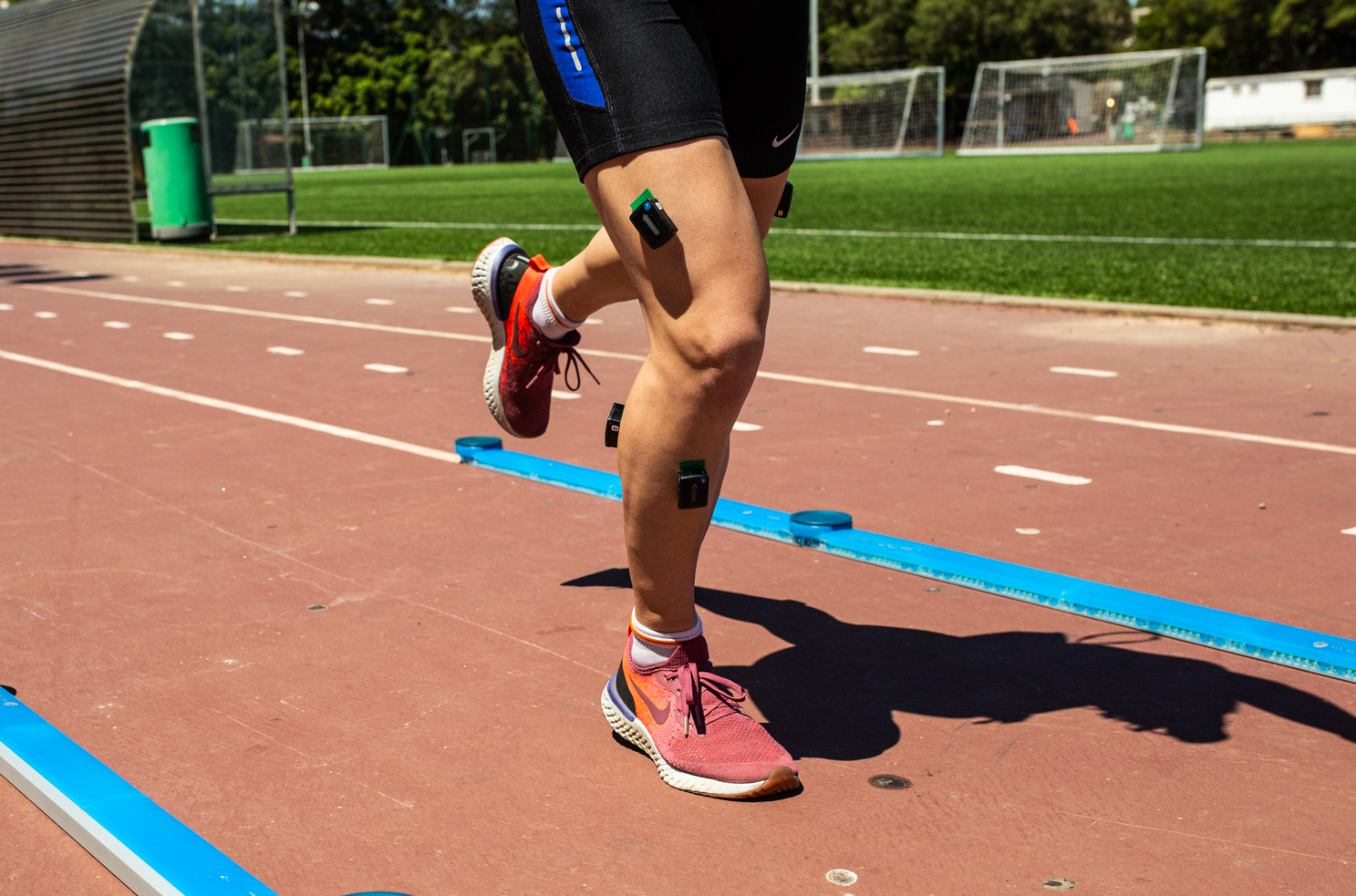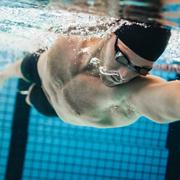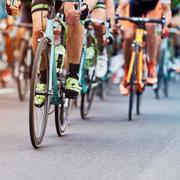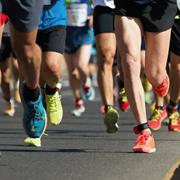Our Services
Make science work for you
Athletes, we want to be there for you with every step, stroke or turn of the pedal. Whether it’s the beginning of the season, in between competition or if you are recovering from an injury, we want to help you succeed.
Testings we offer:
Anthropometric assessment
Assessment of body composition using bioelectrical impedance analysis (SECA device), including amount and percentage of body fat and fat-free mass, and muscle mass distribution throughout the body
.
Resting Metabolic Rate (RMR)
This test measures basic daily energy expenditure, which allows dieticians to give the athlete more accurate consultation, depending on their individualized goals in terms of body composition.
Sweat rate and electrolyte concentration
Assessment of sweat rate (i.e., amount of sweat, in kg, lost in a given time), and measurement of the concentration of the electrolytes sodium (Na-) and potassium (K+) in the sweat. Results from this test can help optimize strategies for fluid intake and electrolyte consumption during and after exercise to minimize the risk of dehydration and excessive electrolyte loss.
Maximal oxygen consumption (VO2max)
A graded exercise test to volitional exhaustion (lasts 8-12 min), performed either on a bike or treadmill. The test is non-invasive and done using a facemask connected to metabolic cart with breath-by-breath analysis, which allows for the measurement of maximal aerobic capacity (VO2max) and estimation of ventilatory thresholds.
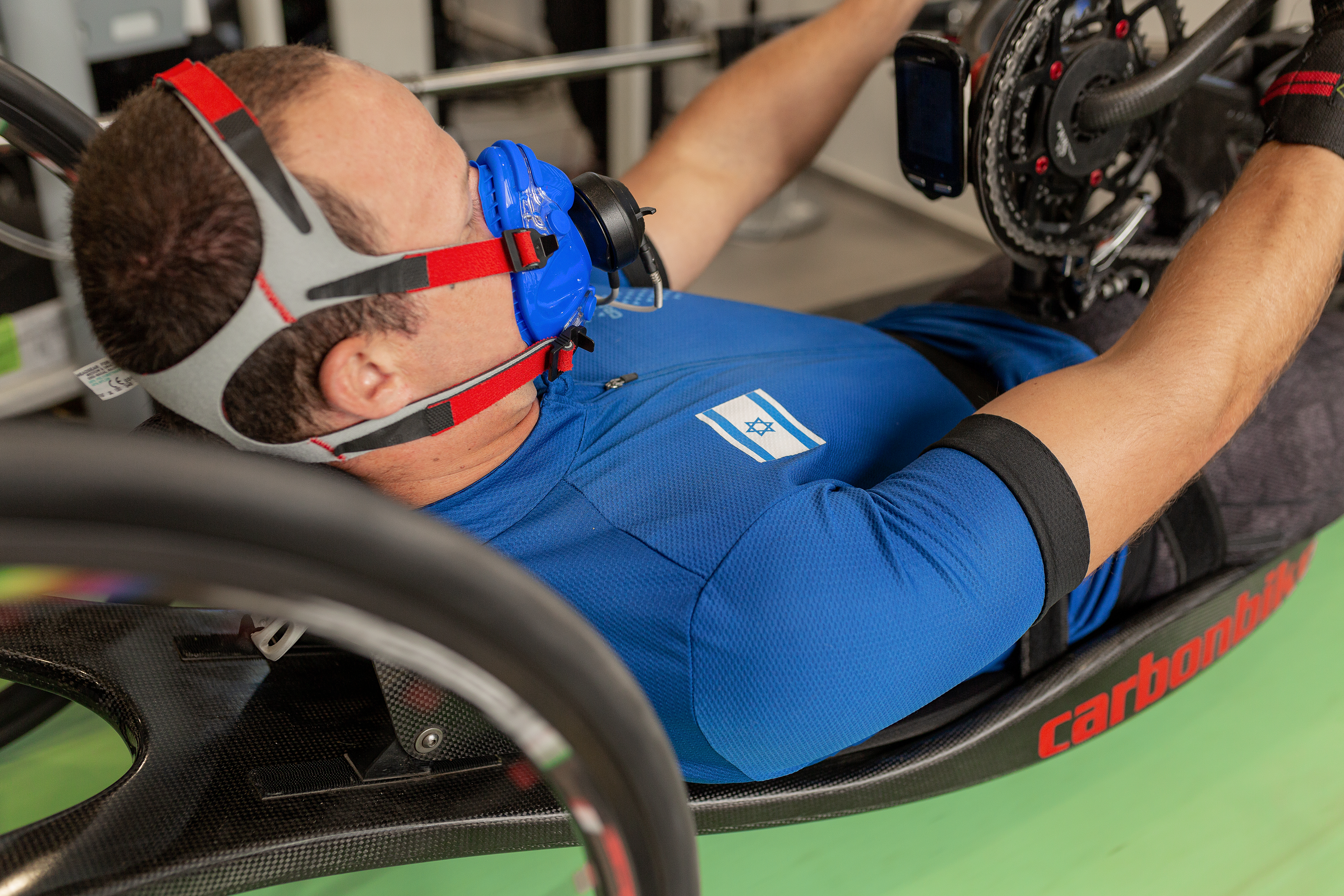
Ventilatory thresholds (with/without blood lactate assessment)
A 30-40 min test during which speed or power are increased every 4 min. Ventilatory thresholds can be identified and used to determine training zones and provide more precise training recommendations. Additionally, mechanical and metabolic efficiency and maximal rate of fat oxidation can be determined. For lactate measurement, a small sample of blood is drawn from the fingertip at the end of each stage.
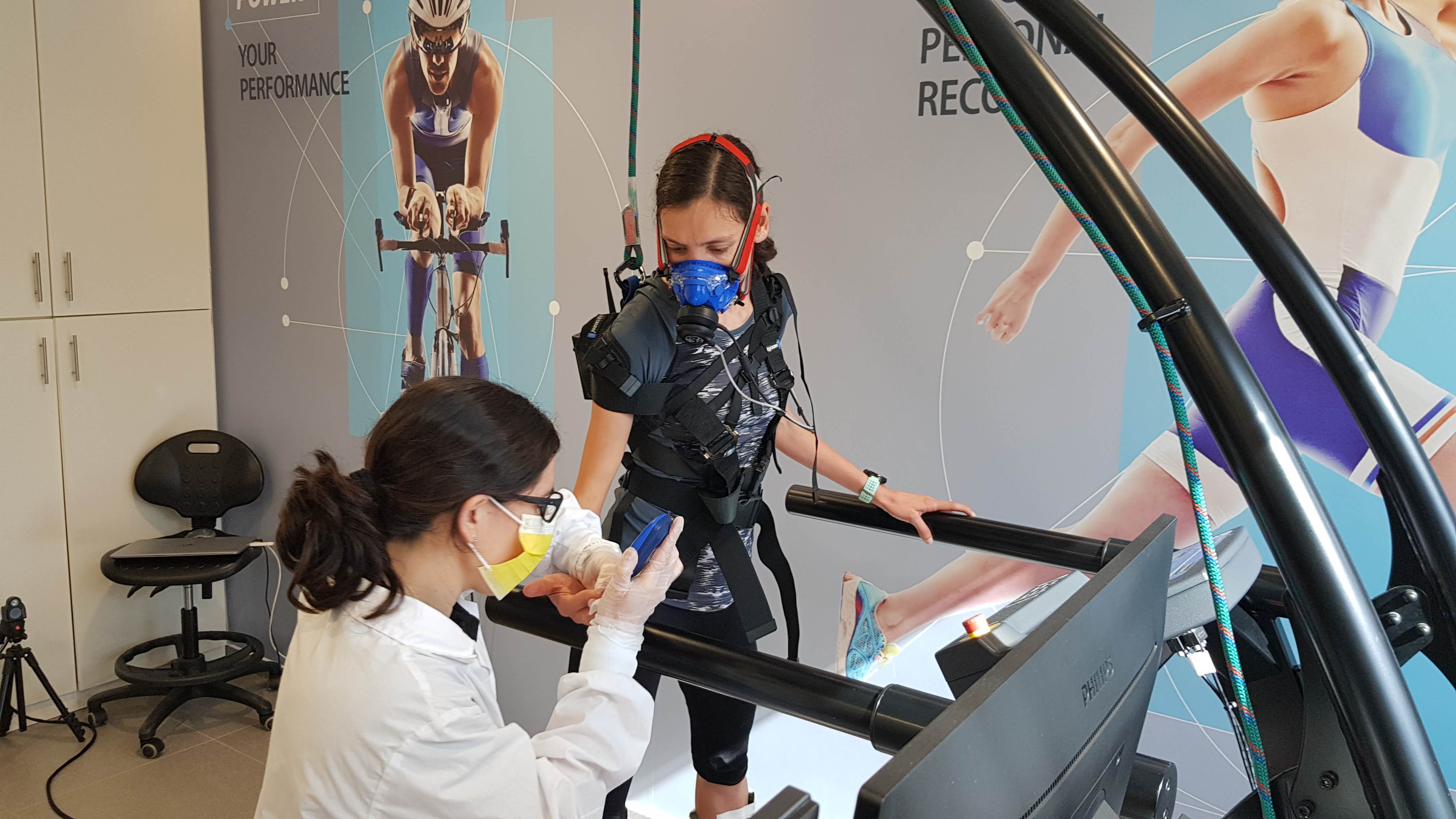
Individualized protocol
An individualized protocol based on the athlete’s needs. Most commonly, the protocol for the test is designed after consultation with the athlete’s coach or professional support team, and addresses specific questions, problems or needs of the athlete.
Repeated sprint test (cycling)
This test includes five times 6 sec sprints with set resistance and is recommended for athletes competing in shorter events that combine aerobic and anaerobic efforts. Results enable the estimation of various measures of aerobic and anaerobic capacities: maximal power and maximal work performed in each rep and overall, rate of fatigue development and more.
Traning monitoring
The Go Heja application is used to monitor and then analyze the athlete’s training on a daily, weekly, or monthly basis.
Sleep monitoring
Length and quality of sleep are monitored using a contact-free sensor and an app. Using information obtained from the sleep-solution app, recovery from and readiness to perform a workout are assessed and used to provide recommendations that will optimize training and racing, avoid excessive fatigue, and reduce risk for injury and sub-optimal performances.
Electromyography – muscle function
Muscle activity is measured using EMG electrodes that are placed on the skin. Which muscles are active during different stages of running/cycling, muscle fatigue, and symmetry of muscle activity during exercise are assessed. Recommendations for muscle strengthening, activation or deactivation to optimize performance and decrease injury risk are given.
Biomechanical analysis (running)
Precise and comprehensive analysis of running biomechanics using a treadmill with built-in force plate and pressure sensors and video analysis.
Swimming technique improvement
Swimming technique is filmed and analyzed while swimming in an endless (flume) pool with cameras placed inside and out of the water. The athlete receives videos recorded during the session and a comprehensive report that includes drills. The assessment can be performed in the presence of an accredited swim coach who provides real-time feedback.
Movement assessment
Clinical analysis of sport-specific posture and movement patterns: joint range of motion, muscle strength, functional movement and symmetry for identification of possible impairments, underlying injury, or recovery from injury, all of which could negatively affect performance.
Nutritional evaluation
Provides athletes with an analysis of eating patterns and habits, adaptation of the diet, if needed, to the athlete’s daily training routines and race-day plan, guidance as to how to maintain or improve body composition, and proper use of nutritional supplements, if needed.
Training recommendations
Personalized training recommendations will be tailored based on the results from the physiological and biomechanical testing, findings from training monitoring, and the athlete’s goals. For those interested, recommendations will be given after a discussion with the athlete’s coach.
Psychological and cognitive evaluation
Aimed to improve mental readiness, motivation, perseverance, self-confidence, anxiety as well as goal setting for training and competitions.
Field monitoring
The Sylvan Adams Sports Institute supports the monitoring of athletes in their natural environment, and therefore the Institute is equipped with means to monitor the training in the field. Monitoring includes muscle function, measurement of oxygen consumption, lactic acid measurement and electrolyte monitoring for the assessment of sweating.
